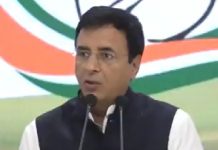Rarely do India’s black robes find for a petitioner who wants a law erased because it is inconsistent with the Constitution. Such a day was 10 July when two Supreme Court judges ruled that a member of Parliament or of a state legislature would automatically lose his seat as soon as he is convicted of any criminal offence the Constitution lists as a ground for disqualification. Until now, a law from 1951 said elected officials could not be unseated if they appealed their conviction at the higher courts within three months. The Supreme Court has now said that provision in the Representation of the People Act, which protects a convict’s membership of the House until an appeal is ruled upon, violates statutory provisions on disqualification.
The framers of the Constitution, the judges said, did not differentiate between those who want to contest elections to the Central and state legislatures and those who are their members. As a Constitutional provision expressly disqualifies convicts from contesting elections, they said the same principle should apply to mps and MLAs as well. The judges rejected the government’s plea that the law aimed not to protect legislators but to ensure they didn’t suffer unfairly as higher courts overturn a large number of convictions by trial courts.
Not unexpectedly, the chattering classes have hailed the ruling as a giant step to clean up India’s chronically criminalised political gentry. TV studios cited statistics to show that hundreds of mps and state legislators are embroiled in criminal cases. Certainly, India’s political system has over the decades degenerated so much that alleged criminals charged with corruption, rape, murder and gangsterism join politics, get elected to legislatures and then go on to subvert governance and administration. Like the judiciary, the political system, too, has struggled for years to curb the entry of criminals in politics and weed out the politicians who break the law.
But the 41-page judgment by Justices AK Patnaik and Sudhansu Jyoti Mukhopadhaya hardly offers a realistic chance to sanitise India’s political system. It is a pity that the judges decided not to lay down norms for action should an appeal court overturn a legislator’s conviction. Would the acquitted legislator get back his seat? What if a bypoll had filled the seat in the interim? The judges recorded this apprehension of the government’s lawyers but shed no light on such an eventuality.
Perplexingly, the judges allowed a sliver of redress for the affected legislator. Citing a provision in the Criminal Procedure Code that Parliament wrote in 1973 to oversee criminal trials, the judges said the legislator would not, however, be unseated if a higher court stayed his conviction, which, they added, would only be a rarity. But the judges also ruled that a legislator would be unseated immediately upon conviction as “… the Constitution provide(s) that if a member of the House becomes subject to any of the disqualification… his seat shall thereupon become vacant”. Thus, while the legislator would be unseated immediately upon conviction, he could be seated right back if the appeal court stayed that conviction. Would it not have been better then to provide for a limited waiting period within which the appeal court must rule either way on a legislator’s plea to stay the conviction, before deciding to unseat him?
Equally confusing is the judges’ decision that although a legislator would be considered unseated upon conviction, the process to fill the seat thus rendered vacant cannot begin unless the President, in the case of Parliament, or the governor, in the case of a state legislature, rules that the legislator indeed stands disqualified as per the Constitution. But if the President, or the governor, “takes the view that the member has not become subject to any of the disqualifications mentioned… in the Constitution, it has to be held that the seat of the member so held not to be disqualified did not become vacant…”
Does it mean that the President/governor has the authority to overturn the trial court’s conviction? Exactly what principles would guide the President/governor in ruling the legislator not disqualified? Would that decision be open to judicial challenge, too? What if the higher courts uphold the conviction but the President/governor continues to insist that the said legislator does not stand disqualified? Whose decision would prevail?
Watch this space.
ajit@tehelka.com










